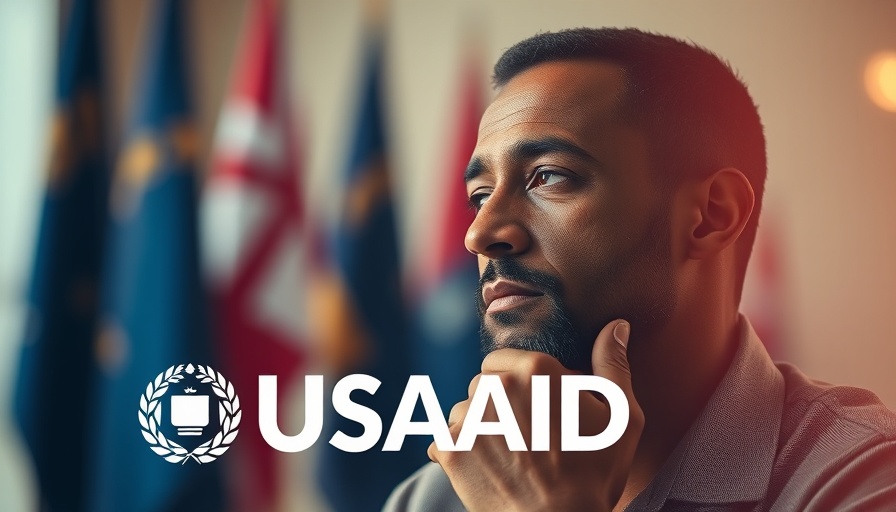
Elon Musk's Controversial Moves Concerning USAID
Recently, Elon Musk's actions against the United States Agency for International Development (USAID) have become a focal point of intense debate and scrutiny. Often celebrated as a visionary, Musk's leadership of the newly formed Department of Government Efficiency has led to devastating cuts to USAID, an organization critical for international aid that operates with a budget in the tens of billions. The consequences, as highlighted by officials within USAID, could result in 'the death of thousands, if not hundreds of thousands,' impacting vulnerable populations globally.
Unpacking Musk's Motivations: A Conflict of Interest?
Critics argue that Musk's contempt for USAID may stem from his personal business interests, particularly concerning his satellite internet service, Starlink. Reports indicate that the agency was investigating Musk’s partnership with Ukraine around the time he initiated efforts to dismantle USAID. This move raises questions about transparency and ethical governance, especially since Musk has publicly berated the organization, labeling it as a 'criminal organization'. It suggests a troubling potential for corporate influence overpowering humanitarian missions.
The Price of Autocratic Power?
Musk's endeavors seem to reflect a growing trend in which business magnates wield enormous influence over government policies, often to the detriment of public welfare. An anonymous USAID employee expressed concerns that Musk's actions may constitute 'an autocratic power grab', a troubling sentiment illustrating the delicate balance between private interests and public service. The dismantling of USAID not only threatens global aid efforts but also signifies a shift in how power dynamics operate in society, especially under the leadership of individuals like Musk.
Implications for Global Humanitarian Efforts
The fallout from Musk's offensive against USAID is already evident. Employees are being asked to leave their positions, disrupting operations that aid countless individuals worldwide. As USAID's oversight on transactions and partnerships diminishes, the potential for humanitarian disasters increases. The perceived threat of corporate-led governance raises the stakes, prompting urgent discussions on the role private interests should play in public sector endeavors.
A Glimpse Into Future Trends
As we assess the implications of Musk's actions, it is essential to keep an eye on how this might influence future government and corporate relations. The global aid landscape is shifting, and the balance of responsibility now hangs in the balance of private enterprises. If corporate power continues to invade and influence vital humanitarian efforts, the world could face an unprecedented crisis borne from greed rather than goodwill.
In conclusion, the developments surrounding USAID under Musk's influence prompt critical discussions about ethics in governance, the potential for humanitarian disasters, and the future of aid organizations in an increasingly corporate world.
 Add Row
Add Row  Add
Add 
 Add Element
Add Element 

Write A Comment